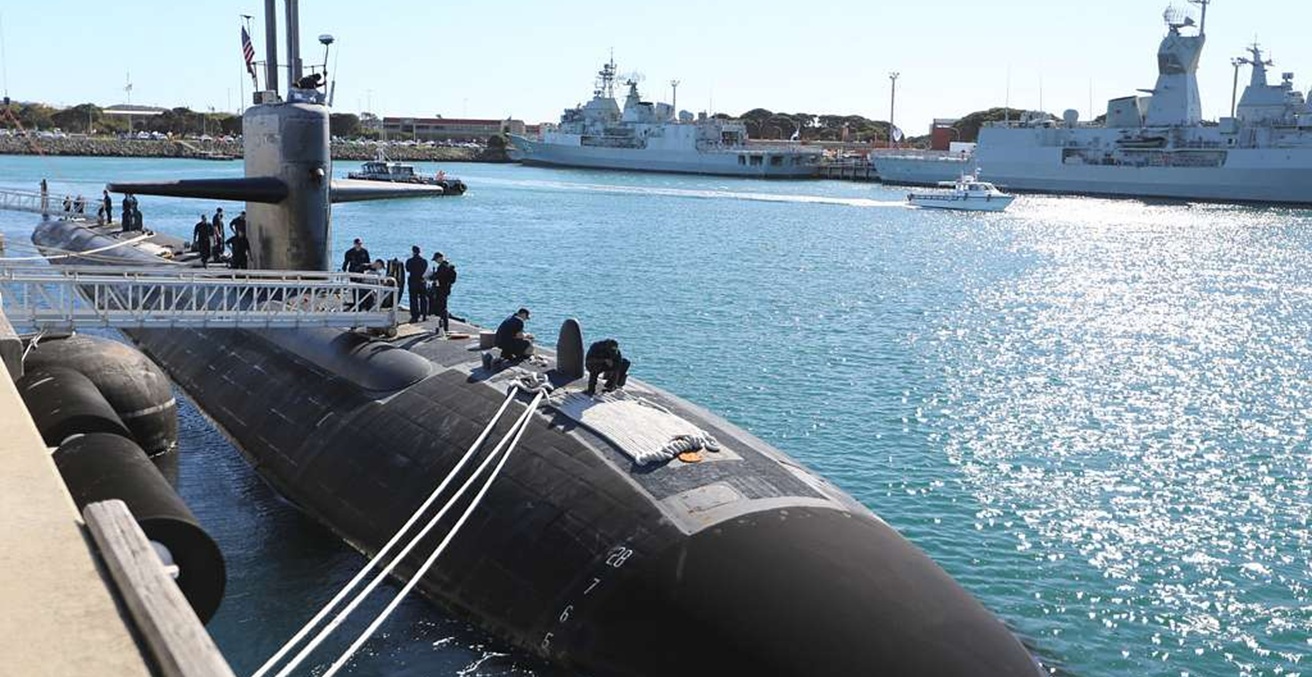Aliaksandr Lukashenka might have little choice but to pose as Russia’s staunch ally in its war on Ukraine, but he will be a general without an army if he decides to send in his troops. Belarusians are overwhelmingly against the war.
More Russian shelling hit Ukraine from Belarusian territory recently. In May and June, Belarus stepped up its military preparation activities and scheduled mobilisation training for early July, prompting concerns that troops were about to be deployed in Ukraine, while Russia promised to supply nuclear weapons. Lukashenka declared during public celebrations in Minsk on 2 July that he had ordered his army to train their guns on unspecified western capitals, ready to retaliate for any possible attacks on Belarus. At the same event, Lukashenka insisted that “we have no ambitions to fight in Ukraine” and “not a single Belarusian soldier is fighting in Ukraine.” He then reaffirmed his regime’s loyalty to Moscow the next day.
This manoeuvring between posing as Russia’s stanch ally and being at pains to emphasise Belarusian troops’ non-involvement reflects Lukashenka’s conundrum. Following the 2020-21 mass protests, which led to Minsk’s international isolation, his regime became entirely dependent on the Kremlin. This makes it difficult for Lukashenka to resist Russia’s revived pressure for unification or refuse any potential demand from the Kremlin that the Belarusian army start participating in the fighting. But the prospect of sending Belarusian troops to Ukraine is so deeply unpopular in Belarus that it could threaten Lukashenka’s hold on power.
Belarusians are overwhelmingly anti-war. According to a May survey by the Warsaw-based Belarusian Analytical Workshop (BAM), 85 percent of Belarusians are against their troops joining Russian military action in Ukraine. Only eight percent supported sending Belarusian soldiers to Ukraine, a drop from 11 percent registered by BAM’s March survey. A study by London-based Chatham House in June showed this portion to be even smaller, only two percent. The majority did not support Russia’s military action in Ukraine.
In fact, the number of Belarusians who oppose involvement in the war may be even higher. Measuring public opinion in Belarus is difficult: independent sociological polls are banned, and these two studies had to rely on telephone (BAM) and internet interviews (Chatham House). Yet, many Belarusians do not feel safe expressing their political views via those channels.
A survey among oppositional-minded Belarusians, conducted in April 2022 by a Telegram-based pollster Narodny opros, showed 73 percent felt unsafe discussing politics on the phone, and 66 percent felt unsafe sharing their opinions via internet. 100 percent of the respondents believe that expressing one’s political views in Belarus carries a risk of arrest.
They have good reason to think so. State repression has been relentless since August 2020; it brought thousands of Belarusians into courtrooms and prisons over the past two years, pushed scores more out of the country, and disrupted the lives of countless families. Those who criticise the authorities face repression daily, according to Viasna, the leading human rights organisation in Belarus, whose own members have been imprisoned. As of 5 July, Belarus had 1,229 political prisoners. In May of this year, Viansa reported over 263 arrests on political grounds, and another 100 in June.
Speaking out against the war in Ukraine is another way to fall foul of the authorities. However, anti-war sentiments in Belarus are historically strong, conditioned by the traumatic collective memory of WWII, which cost Belarus a larger share of its population than any other nation in Europe. This collective memory remained at the core of Belarusian national identity during the Soviet times and in the post-Soviet era. It helps explain why, even among Lukashenka’s backers, few support the option of sending Belarusian troops to fight alongside Russia. The anti-war mentality also explains why Russia’s full-blown invasion of Ukraine provided such a jolt to the protest movement, driven underground by two years of repression. The largest anti-war protest in Belarus took place just days after Russia’s attack, on 27 and 28 February, when Belarusians voted in a constitutional referendum. More than 1,100 people were arrested and 630 were imprisoned.
Some of those arrested were tortured in detention. Belarusian prisons use torture systematically. In May 2022, the UN Special Rapporteur on the Situation of Human Rights in Belarus described this as “a deliberate government policy of deterring or silencing dissent and the exercise of fundamental civic and political freedoms.”
Intimidation failed to stamp out anti-war protests: by early April, 1500 citizens had been arrested for showing solidarity with Ukraine. But it also drove Belarusians towards different ways of opposing the war. The claim that no Belarusian soldier is currently fighting in Ukraine is, strictly speaking, false: several hundred Belarusian volunteers went to fight — for Ukraine.
Other Belarusians back home resorted to the time-honoured tradition of partisan tactics and disrupted the railway movement of Russian military supplies and troops heading for Ukraine. By mid-March, railway traffic between Belarus and Ukraine was brought to a halt, for which the head of the Ukrainian railways, Aleksandr Kamyshin, publicly thanked Belarusian railway partisans. It helped mire the Russian military convoy outside Kyiv. These efforts on the ground were coordinated by “cyber-partisans,” a group of IT hackers who also disrupt government websites. Others posted their observations of Russian troop movements and launching of rockets on Telegram channels. Despite the risk of criminal charges, by late May Belarusian Hajun received over 40,000 intelligence messages sent by over 12,500 persons, according to a report citing founder, Anton Motol’ko.
Belarusians were quick to organise humanitarian aid for Ukrainians across the border and for refugees in Belarus. Volunteers set up collections of medicines, food supplies, and personal hygiene items and took these donations across the border in private cars.
These activities alarmed the Belarusian authorities. By May, the KGB made about 100 arrests in a bid to catch the railway partisans — the railways are now guarded by the military with orders to shoot. Several individuals were charged in June with “attempted terrorism,” a charge that could entail a death sentence. Belarus is the only European country to retain the death penalty, and in May the law was changed to widen its application to include “attempted acts of terrorism.”
The authorities also tried to stamp out the grassroots humanitarian effort. In June, a woman organising a kids’ party for Ukrainian refugee children in Homel was promptly arrested and sentenced to seven days in prison.
Clearly, intimidation tactics have not swayed public opinion in Belarus. State media are unlikely to be any more effective. A study by Professor Samuel Greene of King’s College London found far fewer Belarusians turn to pro-government media than their Russian counterparts. In Belarus, 50 percent of the respondents preferred independent media and only 27 percent preferred state media, whereas in Russia 80 percent of respondents preferred state media. Belarusian authorities’ long tradition of heavy-handed suppression of independent media backfired: rather than boost the audiences for state outlets, it only made Belarusians more adept at seeking new independent sources of information, usually online and using a VPN.
Relying on independent media may explain why Ukrainian marketing specialists, countering Russian pro-war propaganda with anti-war messages sent to Russian and Belarusian audiences on YouTube and Facebook, noticed a dramatic difference in how their messages were received by audiences in Russia and Belarus. While most Russian users rejected their posts as fake news, Belarusians responded with messages of support.
Belarusians will not agree to fight in Russia’s war. According to Chatham House’s poll, only 20 percent have any confidence in their troops actually participating in fighting if they are sent to Ukraine. Seventy-six percent expect Belarusian soldiers to refuse to fight, avoid using weapons, surrender to the Ukrainians, leave the army, or run away.
Sending Belarus’ ill-trained and unmotivated army of conscripts, who are just as likely as not to refuse to fight or surrender, would risk depriving Lukashenka of the support of his own generals and expose him to the possibility of renewed unrest at home. Should the Kremlin insist, he would be between a rock and a hard place. But then, Lukashenka has decades of experience of promising much and delivering little to the Kremlin.
This article was one of the top ten most read articles published in 2022.
Dr Natalya Chernyshova is Senior Lecturer in Modern History at the University of Winchester, UK. She has published on Belarusian and Soviet history. During 2020-2022, her research on Soviet Belarus was funded by the British Academy Mid-Career Fellowship. She has also commented on Belarus’ history and current affairs for The Conversation, PONARS Eurasia, History & Policy, History Today and other media.
This article is published under a Creative Commons Licence and may be republished with attribution.




